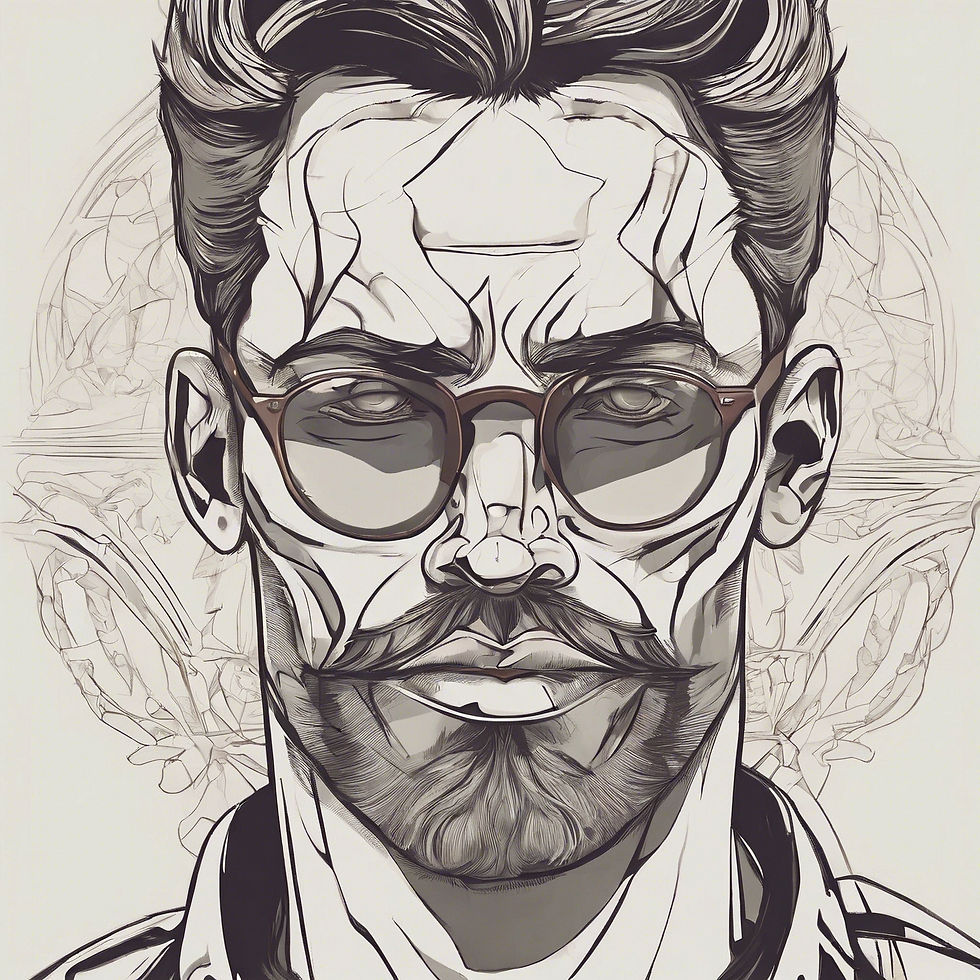
Men in the city are building networks. The melding of animal and spirit drives the actions of men based on a Maslovian continuum starting from the basics (sexual gratification, sustenance, shelter) and ascending towards self-actualization (productivity, meaning, hero-story etc.). The successful ascension of the masculine requires incubators – apprenticeships, cultural-national myths, Männerbunds, orders, rites of initiation etc. – male community, mentors, role models, peer groups and competition against which to test strength, ideas, and progress. The outputs of this activity are natural, healthy and sustainable social hierarchies.
Ultimately, these incubators funnel the inner masculine towards the collective action that forges national identity. So strong is this imperative that if men are denied the process, they will find other ways to recreate it and in recent decades men have done just that. Since Western institutions have withered away under the yoke of Globalist subversion, feminization, and censorship men have retreated and reorganized in parallel online communities. The Manosphere as it has come to be known has been one such vector but increasingly men are branching off into masco-nationalist networks led by online influencers.

One of the alluring features of archetypes is how adaptable they are. Adaptation in this sense does not mean fluidity; masculine and feminine are not ambiguous but transcendent archetypes that “have living power in the imagination and can call us towards them.” They are universally applicable regardless of human environment or social dynamic and self-generate, self-sustain, and self-organize, which explains the failure of propaganda, censorship or even criminalization to eradicate them. If anything, State attempts to tame the masculine has spawned a masco-resurgence in the psyches of men.
Masses of men are losing interest in stoical models from calmer times in favor of a more dangerous masculinity.
Neo-Masculinity channels the dynamism of the masculine archetype. As modernity has changed the social-sexual landscape beyond recognition masculinity is metamorphosing into new, adaptive types because the times we live in demand it. In a very real sense, masses of men are losing interest in the squared away, dutiful, and stoical models from calmer times in favor of a more dangerous, subversive, and polarizing masculinity. It could be argued that in some ways such raw masculinity strips away the polished veneer of the gentleman completely. As a result, male personalities who resonate today are exaggerated, extreme, outlandish, and stylistically distinct. What seems to unify these Neo-Alphas is command of social networks.
Masco-Networks
At present, the masculine archetype is rapidly adapting largely by way of networks. Network theory models the world based on links that become nodes that conjoin in hubs connected in some manner, in our case towards some meta-political objective. Similarly, legacy institutions including governments and local communities leverage social connections but on a far more limited scope. Conversely, digital networks via social-media platforms (Twitter), encrypted messaging services (Telegram), and blockchain technology (Bitcoin) are rapidly outgrowing more traditional social networks. Ironically, the driving force behind these digital networks is a hunger for human connection.
The driving force behind these networks is a hunger for human connection.
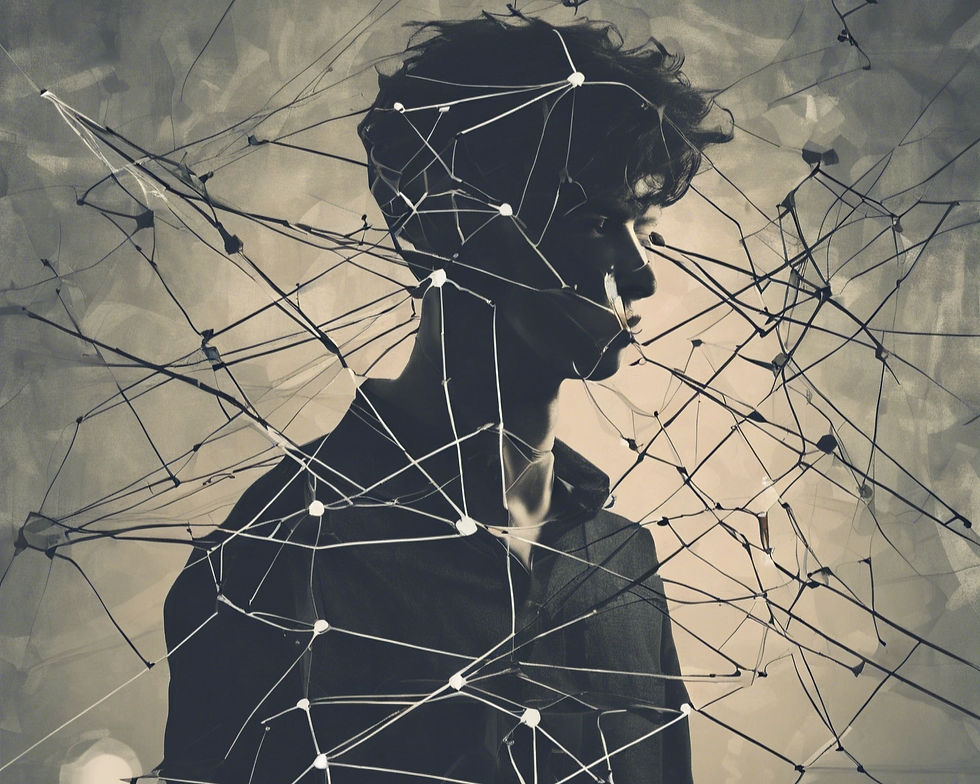
Modernity has left men adrift. Men have been compressed by systematic emasculation: bureaucratization, feminization, political correctness, sexlessness and demographic replacement. But there is something deeper, namely a kind of despiritualization that has left men angry, isolated, and lost. While it is an oversimplification, essentially, modern men are offered two distinct paths: plug into the Matrix or unplug, take the Red Pill or the Blue Pill, conform or resist. Importantly, unplugging from the Matrix is not simply a reaction against modern, anti-male forces; rather, it is a categorical rejection of the world as constructed and a burning, irresistible desire to radically change or destroy it.
Masco-networks are awareness-machines.
Online networks opened a new world to men who wanted a way out and the connectivity and engagement they facilitated transformed these masco-networks into awareness-machines. Masco-networks take men down the rabbit hole of ever-deeper and forbidden questions and controversial ideas about the entire Post-World War-II world. The process sparks an awareness that the world as presented is distorted, that purported forces of good and bad have been inverted, and that the current structure of the democractic West is broken. In sum, the Matrix has been unveiled to masses of men as have its primary goals, mainly to emasculate men and denationalize the West, and eventually to do the same to the rest of the world.
Antifragile Awareness Machines
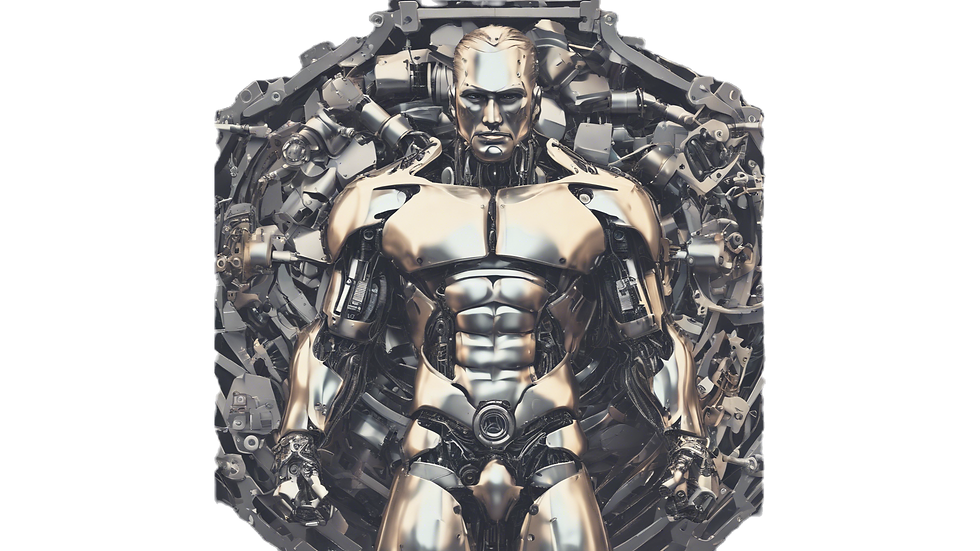
The election of Donald Trump in 2016 awakened the Gerontocracy to the danger of network men. Essentially, online networks rapidly became sufficient to bypass, undermine, and even challenge the Mainstream Media completely. Their incalculable power played a decisive role in propelling Trump into the White House. Indeed, Trump’s verbal onslaught against the Globalist agenda merely opened the floodgates for masco-networks. After his shocking victory an entire cottage industry that came to be known as the “Alternative Influence Network (AIN)” was unearthed.
What is the AIN? According to Data and Society it is:
“an assortment of scholars, media pundits, and internet celebrities who use YouTube to promote a range of political positions…Content creators in the AIN claim to provide an alternative media source for news and political commentary. They function as political influencers who adopt the techniques of brand influencers to build audiences and “sell” them on far-right ideology.
This network is connected through a dense system of guest appearances, mixing content from a variety of ideologies. This cross-promotion of ideas forms a broader “reactionary” position: a general opposition to feminism, social justice, or left-wing politics.”
The Gerontocracy’s reaction as we know was mass censorship designed to crush these networks but remarkably, doing so has utterly failed. If anything, masco-networks have become antifragile, meaning they have become extremely resilient, increasingly robust, and “thrive and grow when exposed to volatility, randomness, disorder, and stressors.” Why is this and how have they continued to spread? It is primarily for three reasons: technology, influencers, and the rise of masco-nationalism.
Cult of Network-Personality
If you build it they will come. Certainly, in the early 2000s few could have imagined the network effect of social-media platforms. Online dating was in its infancy, posting online was weird, and video games were just beginning to world-build. However, by the end of the decade things really began to takeoff with the advent of Facebook, YouTube and Twitter, which spawned online community that in some ways completely upended traditional landscapes especially the sexual marketplace. However, digital networks also presented mediums for new personalities, ideas, movements, and social organization.
Digital networks presented mediums for new personalities, ideas, movements, and social organization.
The genesis of movements emanates from the relationship between leader and led. Ernest Becker called the effect of leadership on the led a “spell cast by persons,” a very complex charisma that “may include everything but a spell.” Certainly, the added nuance of social-media networks has only complexified this already mysterious effect. Social networks have empowered online influencers to scale movements that are far bigger, intricate, and dynamic than in the past. Such scalability has elevated idiosyncratic cults-of-personality.

What are influencers exactly? Well, it seems, they are community builders, and this has been especially the case for men. A new cadre of leaders, sometimes authors, pickup artists, videographers, or simply meme masters became leaders of entire communities like Rollo Tomassi and the Red Pill Community for example. As I have written previously, Andrew Tate took this to another level by transforming the Red Pill Community into a kind of masco-dissident movement comprising a global network of men in what Tate calls the War Room.
Musk’s Twitter is a kind of 21st century digital salon for dissent.
Elon Musk is perhaps an even more extreme kind of influencer because he not only leads a community but owns the most important social-political platform in the world. Think of Musk as somewhat like Philippe I, Duke of Orléans, an aristocrat who fertilized the French Revolution. The Duke of Orléans hosted various salons or groups of political men who gathered in cafes (the Jacobins were one of many) on his estate, the Palais-Royal. Because, the Duke was an aristocrat his property was off limits to the King so Palais-Royal became an incubator for revolution. In this sense, as a free-speech-platform, Musk’s Twitter is a kind of 21st century digital salon of dissent.
The First Rule of Fight Club is Network
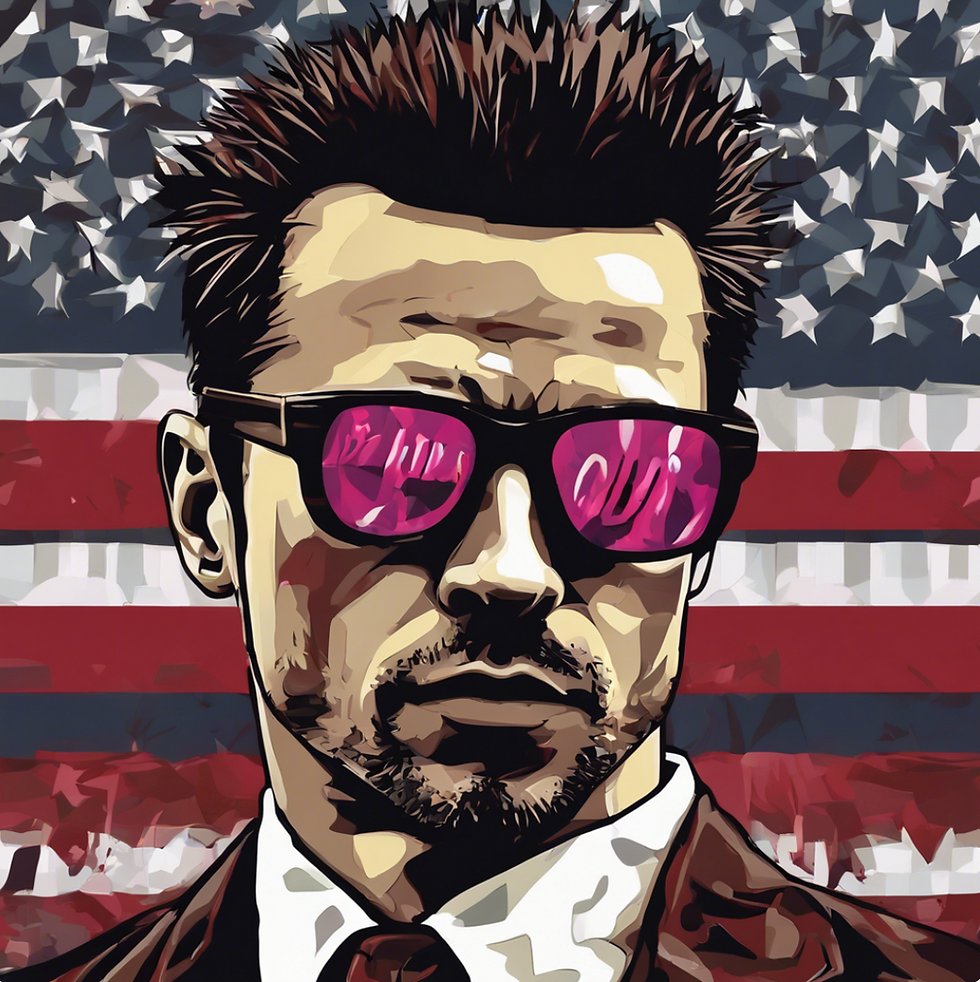
What makes Twitter or any other free speech network prone to dissent is the rise of masco-nationalism. Were there no existential crisis turning men’s lives upside down there would be no Manosphere, no viral online masco-networks or digital fight clubs, there would be no masco-nationalism. The emergency circumstances we face across the Western world is what is fueling masco-nationalism or the coalescence of men into nationalist movements against a system threatening their survival and the sovereignty of Western nations.
Network effects require powerful motivations to spread, to form links, nodes, and hubs. Contrary to the materialist worldview that human action is solely derivative of carrots and sticks, human identity is a far more powerful motivator. National identity, like masculine and feminine archetypes, carries a similar gravity and dynamism. Truly, nationalism is not modern but an ancient archetype itself that possesses magnetic ties that are “irresistible, ineffable, intangible; they exist at some higher plane, perhaps on a spiritual plane; they are non-rational, or even irrational.”
These networks represent the first step, the gateway to collective action.
Ultimately, this is what is powering the network effect spreading men’s groups across the web. Whereas the first rule of Fight Club was “don’t talk about fight club,” it seems the first rule of masco-networks is to network (or on SubStack to write), and that is what is happening. These networks represent the first step, the gateway to collective action, which is why their survival and multiplicity in the face of censorship is so critical. Men repeatedly ask me what can be done in the face of civilizational chaos? The first step is to network and the rest will follow. Remember, Tyler Durden was building an army by spreading networks.
Filling the Vacuum
Of course, there is more, potentially a lot more. As democracy falls and it becomes undeniable that the legacy system is careening out-of-control, networks will become the scaffolding for collective action across the board. They will springboard new currencies (Bitcoin), new corporate entities, new political parties and may become surrogate public works altogether. Masses of men are increasingly aware that government agencies like FEMA as demonstrated in recent weeks are no longer functional. In times of emergency when the State ceases to function properly network men will become crucial to filling in the vacuum.
So, we return to the perennial question – as democracy falls what is to be done? The answer is “spontaneous organization” as it always has been. Online platforms, converging masco- communities (Red Pill, Bitcoin, MAGA etc.), idiosyncratic influencers, and the network effect of masco-nationalism are the guard rails for reorganization. The synthesis of technology and human connection, of hyper-awareness and Neo-Masculinity is readying masses of men for the end of cycle when democracy falls, and the Age of Scarcity begins. What networks are you building? What will you do when democracy falls?
Subscribe for more on men, the city and Neo-Masculinity in turbulent times.
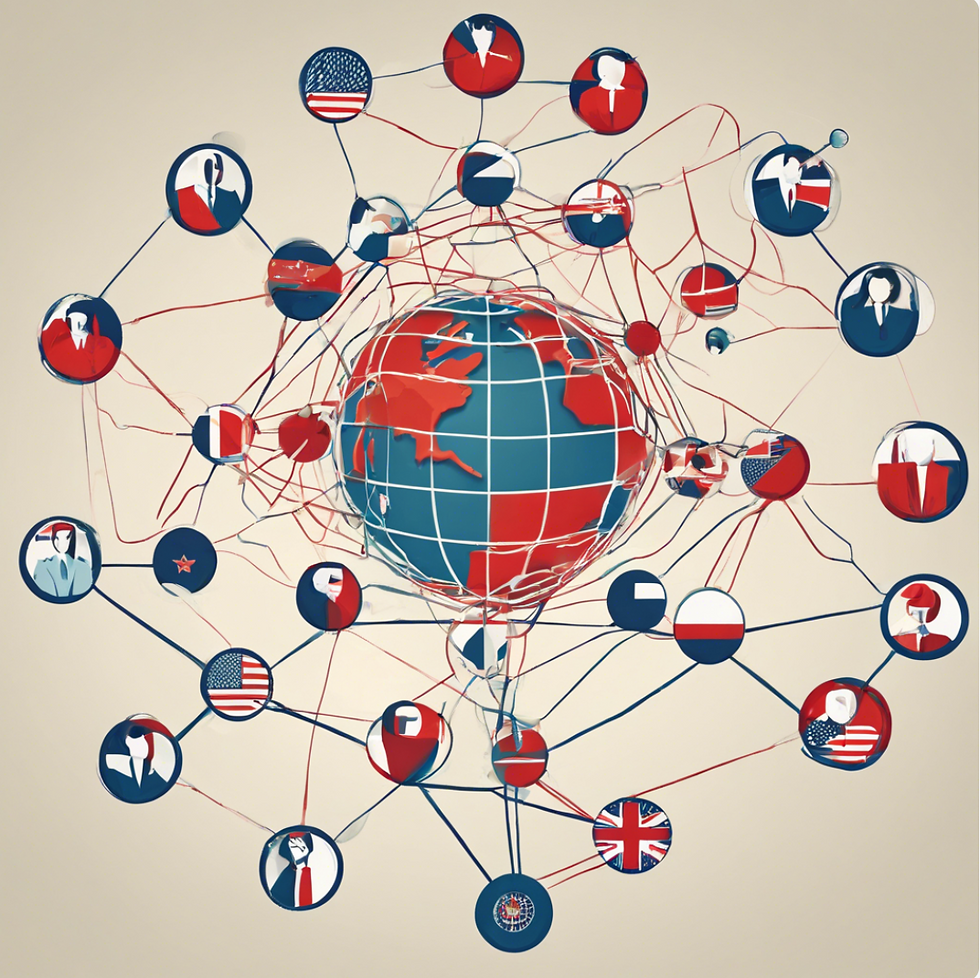

Comments